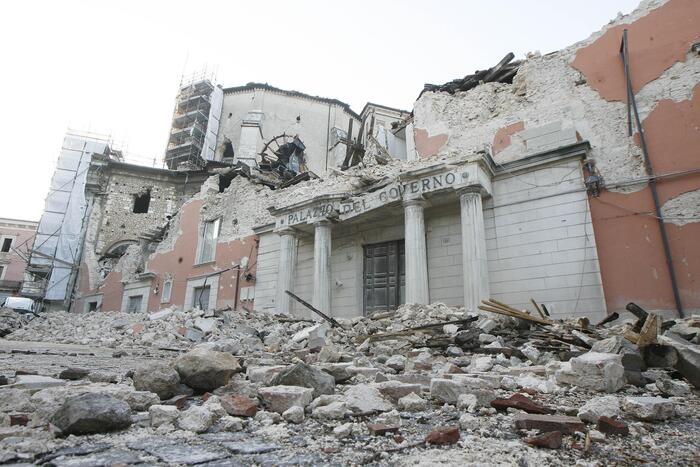Damascus-SANA
Within the framework of the emergency action plan at the national level to confront the effects of the devastating earthquake that caused a large number of victims and injured and the collapse and cracking of hundreds of residential buildings, the Council of Ministers held today an extraordinary session during which it decided to consider the affected areas in the governorates of Aleppo, Lattakia, Hama and Idlib as a result of the earthquake, as disaster areas. And the consequences thereof.
During its session chaired by Eng. Hussein Arnous, the Council approved the delivery of humanitarian aid to all parts of the Syrian Arab Republic, including via lines from within the territories controlled by the state to areas that fall outside the control, and confirmed that the supervision of the International Red Cross and the Syrian Arab Red Crescent over the distribution This aid, with the help of United Nations organizations, will ensure that this aid reaches those who deserve it.
It was decided to establish a national fund for the rehabilitation of the affected areas, to provide all possible support to those affected, to facilitate the entry of all donations and relief initiatives by all means, and to delegate the ministers concerned with the issue of dealing with this aid through the Higher Committee for Relief.
The Ministries of Local Administration, Health, Public Works, Housing, Transportation and Oil were assigned to prepare a database for all the required needs of medicines, relief materials, machinery and oil derivatives to continue rescue operations, remove rubble and rubble, and provide needs for those affected, in addition to preparing a database and inventorying damages in preparation for developing executive programs to deal with them.
The Council of Ministers emphasized the organization of aid distribution operations through coordination between government institutions, organizations, unions, unions, community institutions and initiatives at the national level, and limiting the delivery of aid to the Higher Committee for Relief, which in turn distributes it to the affected governorates, provided that the governors name a special supervisor for each shelter center to distribute this Materials.
The Prime Minister stressed the development of a map to organize work in the affected areas, defining the roles required of each party in the field of damage counting, identifying destroyed buildings, buildings that can be supported, and buildings that are about to fall, to be dealt with and accelerate the return of families to habitable buildings, and directed the governors to take the necessary decisions. To deal with buildings on the verge of falling through the Structural Safety Committees, the Engineers Syndicate and the General Company for Engineering Studies, and the need to put clear signs on the buildings on the verge of falling until they are dealt with.
The Council also took a set of decisions that included:
Organizing the ongoing operations on the ground in terms of securing fuel for vehicles by requesting a fuel company to provide each governorate with the necessary quantities.
Assigning governors to secure alternative locations for the affected state headquarters and institutions, in a way that ensures the continuity of providing services to citizens.
Continue to assess the reality of dams, ensure their structural integrity, and take the necessary measures.
Allowing all ministries, if necessary, to amend the investment plan by allowing transfers to ensure flexibility in providing support and rehabilitating these areas and setting priorities for dealing with them, according to the most affected.
The Council approved the proposal of the Ministry of Education to restore the regular working hours for all kindergartens and vocational, public and Sharia schools in all governorates on Sunday, February 12, except for the affected areas in the governorates of Aleppo, Lattakia, Hama and Idlib, where it is left to the directors of education to coordinate with the governors to assess the situation in their governorates, and to work gradually To restore attendance at it, and to compensate for the educational loss for them by all available means.
The Council requested strengthening communication with international relief organizations.





/cloudfront-eu-central-1.images.arcpublishing.com/prisa/LBNNIBY325CABA2HAMMUUBWQRI.JPG)






/cloudfront-eu-central-1.images.arcpublishing.com/prisa/KMEYMJKESBAZBE4MRBAM4TGHIQ.jpg)


